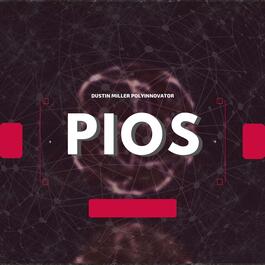
The New PIOS 2025 [Fireside PolyCast]
The P.I.O.S. in 2025: A Framework for Modern Knowledge Management! The P.I.O.S. (Personal Innovation Operating System or Poly Innovation Operating System) is a system framework I created for a modern approach to knowledge management, especially for polymaths. It’s designed to support generalists and multidisciplinary individuals, helping them build a multifaceted "omni-brain" (or "poly-brain"). Unlike the "second brain" concept, which primarily serves as a repository for ideas, the P.I.O.S. emphasizes a more layered, holistic system that integrates all aspects of life. Over the years, I’ve refined this framework, and I’m excited to share its latest iteration. Layer 1: Yearly – Review and Plan The yearly layer focuses on:Reviewing the past year to evaluate progress.Planning for the year ahead. This layer also includes phases, which represent your key areas of focus or disciplines. These phases are like macro-level categories (e.g., swimming, gaming, PolyTools). They allow for interleaving and overlapping, unlike static "areas" in other methods like PARA, which cater more to a specialist mindset. Layer 2: Quarterly – Four Pillars and Ikigai Alignment This layer integrates:The Four Pillars:Body: Tracking exercise and physical health.Mind: The Modular Degree, a DIY education framework to stimulate learning.Spirit: Practices like meditation and Buddhist koans.Emotions: Tracking emotional intelligence (EQ) and gratitude.Ikigai Alignment: Ensuring that all actions align with your personal and professional identity. This helps maintain synergy between your personal life (four pillars) and professional goals (Ikigai). Layer 3: Monthly – Projects and Goals This layer handles:Projects: Grouped under phases, with associated goals and tasks.Goals: Achieved through tasks or projects, they drive progress within your phases.Monthly Notes: A personal and professional summary, inspired by Derek Sivers' Now Page. This serves as a reflective journal, either private or public, capturing what’s happening in your life. Layer 4: Weekly – Systems and Habits This layer is about:Systems: Designing frameworks to sustain habits.Habits: Building and reinforcing behaviors. Habits and systems are interdependent. A system ensures that even if a habit lapses, it can be reestablished more easily. For example, a consistent exercise habit, supported by a system, makes restarting easier after a break. Layer 5: Daily – Content and Networking This is the execution-focused layer:Daily Journal: A private space for reflection, which can also be public if desired.Content Ecosystem: Managing blogs, videos, podcasts, or other creative outputs.Networking Base: A personal CRM to track relationships with podcast guests, hosts, and collaborators. Layer 6: Archive and Templates The final layer is for long-term organization:Archive: Storing completed projects, notes, and references.Templates: Predefined structures to streamline workflows, tailored to the tools in your knowledge management system. In Conclusion The P.I.O.S. consists of six layers: Yearly, Quarterly, Monthly, Weekly, Daily, and Archive. Each layer serves a unique purpose, with iterations refined over time to create a cohesive and practical system. This is the first time I’ve shared this updated framework, and I’m thrilled to hear your thoughts. Cheers! Let me know if you’d like further refinements to the PIOS!
From "The Polymath PolyCast with Dustin Miller PolyInnovator"


Comments
Add comment Feedback